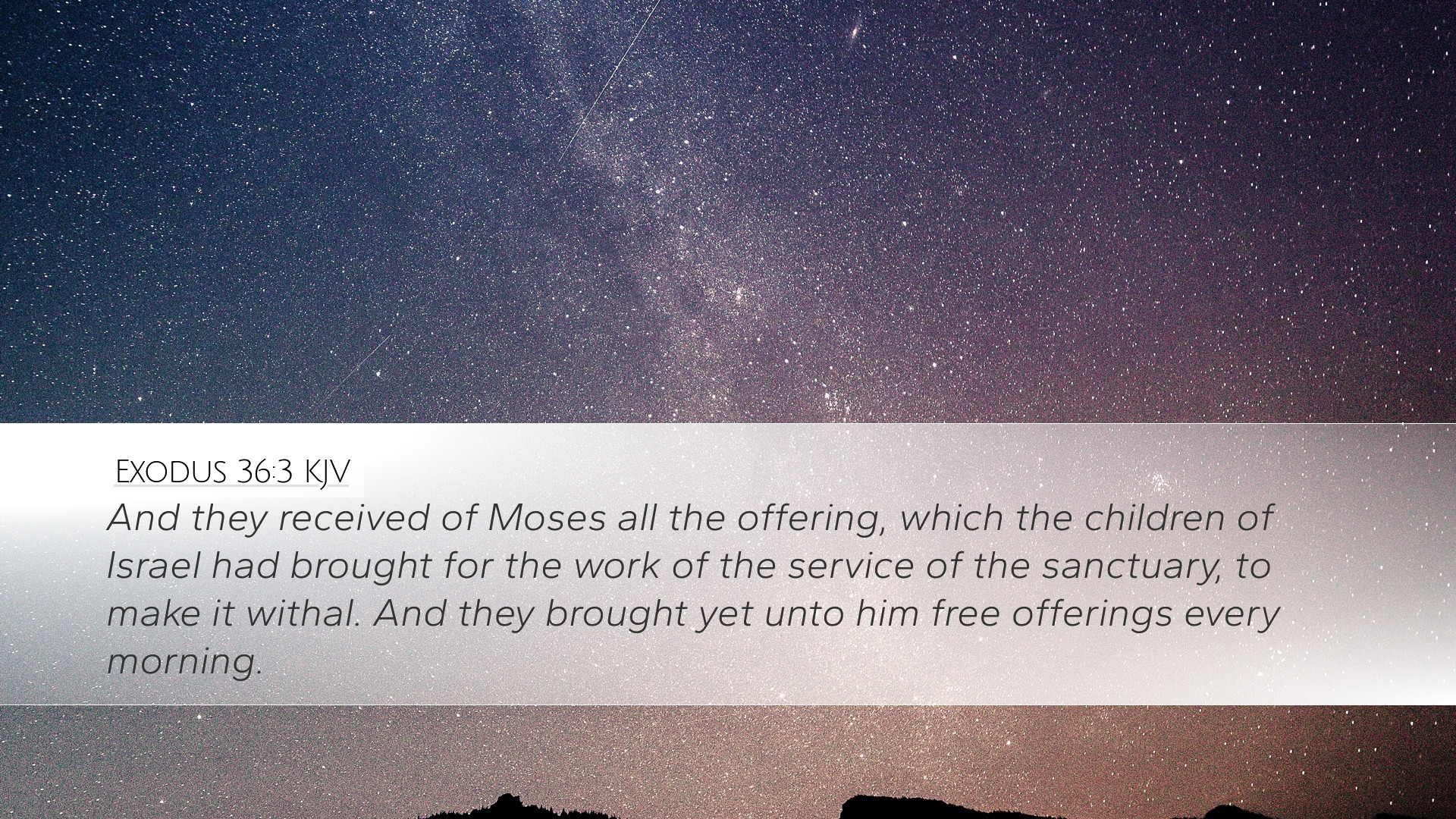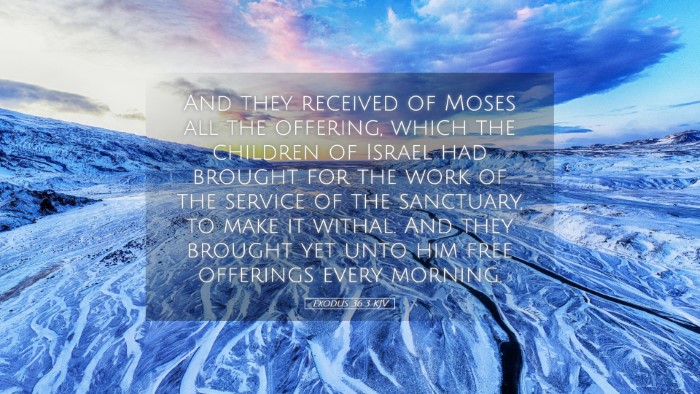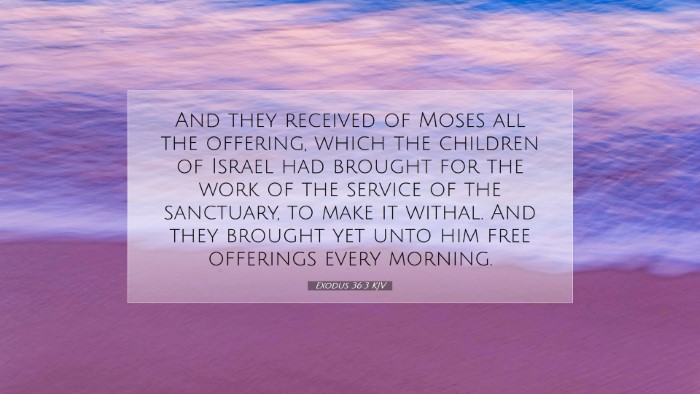Bible Commentary on Exodus 36:3
The verse Exodus 36:3 reads: "And they received of Moses all the offering which the children of Israel had brought for the work of the service of the sanctuary, to make it withal. And they brought yet unto him free offerings every morning."
Context of the Verse
This verse is situated within the broader narrative of the construction of the Tabernacle, a pivotal focal point in the Exodus account. The Israelites, having recently escaped slavery in Egypt, were commanded to build a sanctuary for God—a place where His presence would dwell among them.
The Role of Offerings
The voluntary offerings mentioned in Exodus 36:3 stand as a testament to the people's willingness and eagerness to contribute to the divine project. The act of bringing forth offerings highlights several key themes throughout biblical history.
- Voluntary Generosity: The emphasis on 'free offerings' illustrates the importance of giving from the heart, rather than under compulsion, as indicated in 2 Corinthians 9:7.
- Community Participation: The collective effort of the Israelites to support the sanctuary's construction signifies the unity and communal aspect of worship and service.
- Sacred Responsibility: The task of building a sanctuary reflects believers' responsibility to participate actively in the work of God within their communities.
Insights from Public Domain Commentaries
Matthew Henry's Commentary
Matthew Henry emphasizes the heart of the people in their offering: "They did not only receive offerings, but the people brought them willingly. Their continued contributions demonstrate a spirit of sacrifice and an acknowledgment of God's greatness." Such enthusiasm in offerings suggests a profound relationship between the Israelites and their God, reinforcing the idea that true worship involves active participation.
Albert Barnes’ Notes on the Bible
Barnes reflects on the systematic way the offerings were collected: "Moses received the offerings, a significant act denoting leadership and organization. This collection signifies both trust and the proper channeling of resources for spiritual endeavors." Through this, Barnes highlights the vital role of leadership and structure in community worship and service. Moreover, he notes that the repetitive aspect of their giving showcases an ongoing devotion rather than a one-time act of charity.
Adam Clarke's Commentary
Clarke offers insights into the nature and purpose of the offerings: "These gifts were meant for the service of the sanctuary, and they reflect the worthiness of the cause to which they were directed." He articulates a theological underpinning, asserting that the offerings were not merely for a physical structure but an investment into a sacred space that would foster spiritual connection and divine interaction.
Theological Implications
Exodus 36:3 presents significant theological implications for both the Old and New Testament contexts. The act of giving towards a sacred space lays the foundation for understanding stewardship in the Christian faith.
- God Desires Our Contribution: Like the Israelites, modern believers are called to contribute their resources—time, talents, and treasures—for the advancement of God's kingdom.
- In Christ, Our Offerings Are Enhanced: The ultimate sacrifice of Christ redefines what it means to give, as believers are called to offer their lives as living sacrifices (Romans 12:1).
- The Role of the Church: Just as the Israelites were guided by Moses, the church today is called to facilitate and guide believers in their acts of service and contributions, ensuring that everything is done decently and in order (1 Corinthians 14:40).
Practical Applications for Today
From this verse, various practical applications emerge:
- Encourage Generosity: Leaders within the church should cultivate an environment that encourages voluntary giving while underscoring the joy and blessing of contributing to God's work.
- Facilitate Community Engagement: Encourage church members to engage in communal projects that reflect their readiness to support the spiritual fabric of their communities.
- Teach About Stewardship: Regular teachings on stewardship, mirroring the Israelites' offerings, should be incorporated into church life, guiding believers to understand their roles as caretakers of both material possessions and spiritual gifts.
Conclusion
Exodus 36:3 prompts believers to reflect deeply on the significance of their contributions to God's work. The enthusiastic giving of the Israelites serves as a challenge to modern believers to engage actively in the mission of the Church. By examining this verse through the lens of esteemed commentaries, pastors, students, theologians, and Bible scholars can glean rich insights into the nature of worship, community, and divine service.


